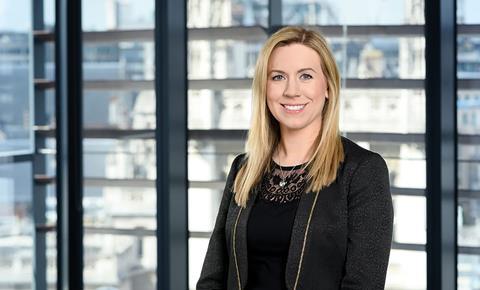The controversial tool of private prosecutions is central to government efforts to combat fraud, compensating for the chronic underfunding of public agencies. Katharine Freeland reports
The low down
Fraud is proliferating, with organised criminals taking advantage of online targets in ever more sophisticated ploys. Fraud now accounts for 40% of all UK crime yet fraud investigation receives just 2% of police funding – although the government’s Economic Crime Plan 2 promises £100m to address this in the next three years. The strategy seeks enhanced cooperation between government, law enforcement and the private sector. That may include the controversial use of private prosecutions, even as an official inquiry probes the Post Office Horizon scandal. Law firms need to keep abreast of the risks that the UK’s fraud epidemic presents to the way that they and their clients operate. For some, there are opportunities for lucrative instructions.
Fraud is ubiquitous. Nearly everyone has experienced it in one form or another. Low-level fraud, such as small-scale authorised push payment fraud (when a person or business is tricked into sending money) is especially difficult to target. It is not worth the time and expense for law firms or global investigation agencies, and far down the list of priorities for an overstretched police service and Serious Fraud Office (SFO).
‘The growth in fraud and the speed at which it is evolving is alarming,’ says Mike LaCorte, CEO of intelligence, investigation and security agency Conflict International. ‘It increasingly involves organised crime deploying AI techniques online, creating layers that are difficult to unpick. Crossing multiple jurisdictions, we are playing a continual game of cat and mouse with the fraudsters.’
With state enforcement agencies such as the National Crime Agency (NCA) and SFO chronically underfunded, fraud that meets a sufficiently high threshold is increasingly being pursued through private prosecutions. The government’s repeated reference to the role of public-private partnerships in its latest Economic Crime Plan 2 indicates that a joint approach is being seriously considered as the future in fraud prevention strategies. One option to tackle fraud would be the expansion of civil recovery mechanisms in Part 5 of the Proceeds of Crime Act 2002 (POCA), outsourcing litigation proceedings to private law firms in return for a share of the recovered proceeds.
‘The argument is that allowing private prosecutions may give access to high-quality litigation expertise without a cost to the taxpayer, while at the same time offering a more objective and experienced lens to the viability of the litigation,’ says Helena Wood of thinktank the Royal United Services Institute (RUSI). Arguments against this, she points out, include reconciling the commercial drivers of the private sector with public interest concerns.
Front of mind for many who question a reliance on private prosecutions are the notorious cases brought by the Post Office against subpostmasters for fraud, based on data from its flawed Horizon IT system. More than 700 were wrongly prosecuted in a shocking miscarriage of justice. An official inquiry in which the role of the lawyers involved will shortly come under intense scrutiny continues.
Victim compensation is also a thorny issue, given that law firms will expect to receive a substantial share of the eventual proceeds of recovery. Conflicts of interest may arise with client adoption, and the transfers of evidence and disclosure also pose concerns. ‘There are controversies over the private prosecution route, but the huge underinvestment in asset recovery over the past decade means that the pace of fraud has outstripped the public sector’s abilities to deal with it,’ says Wood.
Government action
The government has introduced a number of legislative measures to combat fraud, including the Unexplained Wealth Orders (UWO) regime implemented in the Criminal Finances Act 2017, which compel the target to reveal the sources of unexplained wealth.
Although not a power in itself to recover assets, failure to respond to an UWO means the assets in question can be made subject to a civil recovery action under POCA. Only nine UWOs have so far been secured by enforcement agencies, in relation to four cases. In June 2022 one case ended in an ignominious court defeat for the NCA, which faced costs of £1.5m.
In response, the Economic Crime (Enforcement and Transparency) Act enacted in March tackled some of the gaps in the regime by reforming the cost rules to prevent enforcement agencies incurring substantial costs when an action goes against them. It also enables UWOs to be sought against property held in trust and other complex ownership structures – a move which should assist the enforcement of the sanctions regime, with Russia the current priority.
'Under the sanctions regime in the UK, the state cannot currently seize or forfeit assets of designated persons, which would arguably amount to a disproportionate interference with their rights'
Shaul Brazil, BCL Solicitors
Politicians – including Labour’s Stephen Doughty and Liberal Democrat leader Ed Davey – have petitioned for a move from ‘freeze to seize’ to further hobble the power of Russian oligarchs (a shift already implemented in Canada). But this poses difficulties under POCA, which requires that a certain level of criminality has to exist to justify seizure.
Shaul Brazil, a partner at BCL Solicitors specialising in business crime and regulatory enforcement, says: ‘Under the sanctions regime in the UK, the state cannot currently seize or forfeit assets of designated persons, which would arguably amount to a disproportionate interference with their rights. There are mechanisms available under POCA to seize or forfeit property if the criteria are met.’
The most seismic shift in the treatment of fraud would be the introduction of a new ‘failure to prevent’ corporate criminal offence along the same lines as that introduced for bribery in the Bribery Act 2010, and facilitation of tax evasion offences in the Criminal Finances Act 2017.
This would mean any business that fails to prevent fraud by an associated person would commit an offence – the only defences being evidence of reasonable procedures to prevent fraud or good reasons for not having these procedures in place.
The measure is currently being considered in the Lords as an amendment to the Economic Crime Bill. The move has been enthusiastically backed by enforcement agencies – SFO director Lisa Osofsky described it as having the ‘potential to transform prosecution’ of the crime. But it has huge implications for lawyers, accountants and other professionals if they are shown not to have reasonable measures in place to prevent money laundering, fraud and false accounting.
Conversely, it is likely that, as with the Bribery Act, if a strict liability fraud offence is enacted, pre-emptive instructions to specialist white-collar lawyers from businesses requiring compliance sweeps will rise. They will be asked to identify any weak links in compliance programmes before the regulators do.
Data overload
The hacking of online data to commit economic crimes is increasingly a key component of many frauds. The 2022 Telephone-operated Crime Survey for England and Wales revealed that there were 1.6m incidents of computer misuse in the previous year – an 89% increase on 2020. Hacking offences more than doubled to 1.3m during this period, with victims’ email or social media accounts compromised, often via large-scale global data breaches. The Cyber Security Breaches Survey 2022 showed that 39% of UK businesses identified cyber breaches or attacks in the previous 12 months.
Following the correct protocols for obtaining data is imperative for lawyers, to avoid accusations of misconduct. It is commonplace for litigators to be approached by sources offering to provide data to support cases that they are litigating. ‘Law firms have to be wary about how exactly they obtain data and those methods have to be capable of standing up in court,’ says Kingsley Napley partner Mary Young. ‘There can be no shortcuts for lawyers.’
Conflict International’s Mike LaCorte argues for the licensing of investigations agencies so that law firms and other professional clients know exactly what they are getting – and that information sought is obtained by court-approved methods. The only existing credential is for such agencies to become a member of the Association of British Investigators, which is the only association in this sector to be recognised by the Law Society. The investigations industry itself remains unregulated.
English courts
Litigators say Brexit has made little difference to England and Wales as one of the leading jurisdictions to file complex multi-jurisdictional fraud and asset tracing claims. One development they would like to see though is the UK becoming a signatory to the Lugano Convention, a move that was mooted when the UK ceased to be party to Brussels regulation (the UK’s first application was blocked).
‘Although so far there have been no obstacles to enforcing judgments in Europe, the profession would like to see the government follow through with its intentions to become a Lugano signatory,’ says Richard Lewis of Hogan Lovells. He is currently advising on the largest fraud case in the English courts, JSC Commercial Bank PrivatBank v Kolomoisky & Others.
'It is a heartening confirmation of the strength of the English courts that they are willing to quickly take the necessary steps to address a lacuna in the system when they see one'
Mary Young, Kingsley Napley
Hogan Lovells represents Ukrainian state bank PrivatBank against a number of defendants including Igor Kolomoisky and Gennadiy Bogolyubov (as well as their alleged six companies) over allegations that the defendants misappropriated over $1bn in sham transactions from PrivatBank in an orchestrated fraud scheme. Kolomoisky and Bogolyubov deny any wrongdoing.

Being a common law rather than rules-based civil law system has also allowed English courts more flexibility to adapt when faced with disputes involving new fintech such as cryptocurrencies and other digital assets.
‘The courts have demonstrated through recent judgments involving crypto that they will apply tried and tested methods to these new assets,’ says Mary Young, dispute resolution partner at Kingsley Napley. ‘It is a very heartening confirmation of the strength of the English courts that they are willing to quickly take the necessary steps to address a lacuna in the system when they see one.’
AA v Persons Unknown [2019] was the first High Court case to recognise that cryptocurrencies can be considered ‘property’ under English law, and so capable of being subject to a proprietary injunction. Courts in other common-law jurisdictions swiftly came to the same conclusion. ‘This was demonstrated by the New Zealand decision in insolvency case Ruscoe v Cryptopia Ltd (in liquidation) [2020] and the Singapore case of CLM v CLN [2022]. In CLM the courts decided that the bitcoin and ethereum that had been allegedly misappropriated (a portion of which had been traced to digital wallets controlled by cryptocurrencies in Singapore) was property, so capable of giving rise to proprietary rights that could be protected by a proprietary injunction.’
'Crypto exchanges should prepare for an increase in claims being made directly against them where the proceeds of crypto fraud can be traced into that exchange'
Emma Allen, Taylor Wessing
In 2020 London’s Commercial Court provided groundbreaking guidance in Ion Science Ltd v Persons Unknown & Others on the lex situs of bitcoin, deciding that this was where the person who owned the crypto-asset was domiciled. The court granted a proprietary injunction and worldwide freezing order against persons unknown, an ancillary disclosure order to help with identifying the fraudsters and Bankers Trust orders against the cryptocurrency exchanges concerned (which oblige financial institutions to provide information on a customer who has perpetrated a fraud).

Wang v Darby [2021] then provided more clarity on the nature of fungible and non-identifiable digital assets, categorising them as property ‘capable of being bought and sold as well as held on trust as a matter of English law’.
Other important cases in the past year include Danisz v Persons Unknown, which demonstrated the speed with which the High Court can act in cryptocurrency cases where assets can disappear at the touch of a button. Having invested £27,000 of bitcoin in a website called Matic Markets, one Ms Danisz became suspicious of the validity of the site and commissioned an expert report, which concluded that Matic Markets was a fraudulent operation. On the basis of the report a worldwide freezing order was granted just one month after her application to the court; part of a package of interim remedies that also included a Bankers Trust order, an interim proprietary injunction and reporting restrictions on the injunction.
D’Aloia v Persons Unknown and others held that the claimant had a good arguable constructive trust claim against the exchanges which were understood to be holding the proceeds of fraud. ‘Crypto exchanges should prepare for an increase in claims being made directly against them where the proceeds of crypto fraud can be traced into that exchange,’ says Emma Allen, a senior associate in the disputes and investigations team at Taylor Wessing.
A procedural, rather than case law, development that has made a big difference for lawyers and their clients is the new gateway for the service of English proceedings outside the jurisdiction.
Amending Practice Direction 6B of the Civil Procedure Rules, since 1 October 2022 orders such as Norwich Pharmacal orders – which seek disclosure of information on the true identity of a potential defendant – and Bankers Trust orders can be served without having to first commence proceedings against persons unknown.
This was enacted with stolen digital assets in mind – to remove some of the jurisdictional barriers claimants face locating and recovering assets from fraudsters based outside England and Wales. ‘The new gateway has had a big impact,’ says Lewis. ‘It is more efficient, quicker and cost-effective, and allows us to retain more control over the process as we do not have to lodge claims in foreign courts to proceed.’
The future
There will no doubt be more crypto-related asset-tracing developments, with the courts adapting their approach as the sector evolves. As business failures rise and insolvency practitioners are called in, evidence of frauds will be uncovered and generate new cases. Fraud and asset-tracing practitioners also have to keep an eye on the closely related world of sanctions and the knock-on effect of how illicit funds might find their way into trusts or other complex ownership structures.
Also worth watching are environmental, social and governance (ESG)-related false reporting claims. With the proposed formalisation of climate change reporting by the US Securities and Exchange Commission and the Companies (Strategic Report) (Climate-related Financial Disclosure) Regulations 2022, and amendments to the UK Companies Act 2006, investors will be watching very closely. The UK legislation imposes obligations on certain publicly quoted companies and large private companies to incorporate climate disclosures in their annual reports.
‘The new generation of ESG-focused investors expect companies to align every aspect of their business to fit their stated ESG credentials,’ says Young. ‘Their commitment is expected to go way beyond the investment statement. If there are discrepancies between this and the way they do business this could give rise to claims of misrepresentation.’

Katharine Freeland is a freelance journalist
































No comments yet